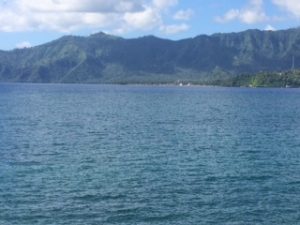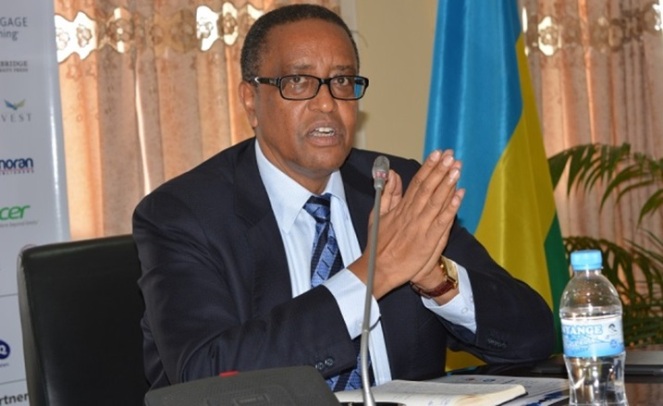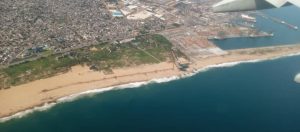Accord de Paris
Adaptation
Adaptation Fund
AFRIQUE
Analyse
Climate Change
Climate Finance
Energy
enjeux
Green Climate Fund
Non classé
PNUE
reportage
République centrafricaine
Rwanda
Climate Change, education, Houmi Ahamed-Mikidache, Silas Lwakabamba, sustainable development, World Environment day
ERA ENVIRONNEMENT
0 Comments
World Environment day: ” We must not let education become the forgotten casualty of climate change”-Silas Lwakabamba
World Environment day: “We must not let education become the forgotten casualty of climate change”-Silas Lwakabamba*
On World Environment Day, there are plenty of words spoken about the obvious damage being wreaked by climate change – the chaos of hurricanes, wild fires and melting polar ice caps is there for all to see. But there’s another more hidden casualty of this new world of rising temperatures, drought, and increased natural disasters: the education of our young people.
At the simplest level, the wilder weather that we’re already seeing means children are prevented from getting to school. Hurricanes Irma and Harvey meant 1.7 millionUS students were temporarily unable to go to school last year – and officials in Puerto Rico have also recently announced plans to close over 280 schools following the devastation wrought by Hurricane Maria.
“Climate change is compounding educational inequalities that already exist”
In wealthier nations, the damage caused by the increasing occurrence of extreme weather events more often than not tends to cause temporary disruption to children’s education. But in poorer countries, the consequences can be far more long lasting. Buildings and infrastructure can take months or years to rebuild, with devastating implications for learning. Girls are most likely to be taken out of school in the wake of climate-related shocks, as was found in studies in Pakistan and Uganda after natural disasters there. So, indirectly, climate change is compounding educational inequalities that already exist.
But the hardest hit parts of the world are those where universal education is still denied millions and Sub-Saharan Africa is on the front lines. Adult literacyrates are around 65%, compared to a global average of 86%. Here, over a fifth of childrenaged 6-11 are out of school, and a third of those aged 12-14.
In Rwanda, we know the devastating impact of being forced from one’s home can have on a child’s education. But the big refugee crises of the future will not just be driven by war, but by the environment, with experts warning tens of millionsare likely to be displaced in the next decade by droughts and crop failures brought about by climate change.
What’s more, rising temperatures are predicted to result in the spread of lethal diseases. It is thought that a 2°C rise in temperatures could lead to an additional 40-60 million people in Africa being exposed to malaria. The disease is already one of the most significant factors in student absenteeism on the continent, with estimates ranging from 13 – 50%depending on the region. Environmental changes are diminishing children’s education in other ways too. Malnourishmentdirectly affects children’s ability to learn. The World Food Programme has identified hunger and malnutrition as one of the most significant impacts of climate change. Poor maternal diet means the odds are stacked against a growing number of children even before they are born.
Food shortages and crop failures can also cause conflict and political extremism – which can also blight educational chances. In Mali, for example, where rainfall has dropped 30% since 1998, the instability has created an environment where poisonous anti-education ideologies can flourish. Recent years have seen many tragic attacks on African schools, from Boko Haram in Nigeria to rebels in DR Congo. States weakened by the economic and social damage of climate change will be less able to counter these destructive forces.
If states start to fail, then precarious state funding for education – which is already being squeezed even before the impact of climate change is taken into consideration – will be at risk. The percentage of trained primary school teachers in sub-Saharan Africa has already fallen by 27.5% in just 15 years, from 84.4% in 2000 to 61.23% in 2015, according to UNESCOdata. Meanwhile, teachers from Nigeria to Kenya frequently find themselves unpaid at the end of the month. This despite the chronically low levels of remuneration; UNESCO has found there has been a decline in teacher payacross Africa since 1975. As states grapple with increasingly perilous priorities in the face of so many threats borne by climate change, education funding may be one of the first things to get cut.
The Dubai Declaration
It is vital that we understand the threat posed by climate cha nge to education and act against it. That is why I support the Dubai Declaration on Climate Change made at the Varkey Foundation’s Global Education and Skills Forum in March. The declaration calls on the international community to take action in educating the next generation about the perils of climate change along six key principles: education is the responsibility of all; global interdependence and the imperative of planetary stewardship provide the critical context for education in the 21st Century; averting catastrophic climate change calls for improved climate literacy for all; education needs to foster a sense of global citizenship and ecological responsibility in all; and education reform and climate action should be pursued as mutually reinforcing objectives in public policy.
nge to education and act against it. That is why I support the Dubai Declaration on Climate Change made at the Varkey Foundation’s Global Education and Skills Forum in March. The declaration calls on the international community to take action in educating the next generation about the perils of climate change along six key principles: education is the responsibility of all; global interdependence and the imperative of planetary stewardship provide the critical context for education in the 21st Century; averting catastrophic climate change calls for improved climate literacy for all; education needs to foster a sense of global citizenship and ecological responsibility in all; and education reform and climate action should be pursued as mutually reinforcing objectives in public policy.
The Dubai Declaration is an important start in ensuring education does not become the forgotten casualty of climate change. But in the face of the multitudinous and multifaceted threats climate change poses to education right now, from children kept out of school due to extreme weather events to those forced to flee their communities by longer term climactic conditions, to conflicts, hunger and disease, governments must act urgently to ensure that every single child is given access to a good school and a well-trained and qualified teacher. On this World Environment Day, ahead of the G7 Leaders meeting in Canada, it’s a timely reminder that climate change is doing immediate damage to the life chances of children all over the world who are being denied their birthright of a decent education.
Silas Lwakabamba is the former Minister of Education of Rwanda and a member of the Atlantis Group of former Education Ministers around the world, an initiative of the Varkey Foundation since March 2017
Share this content:









